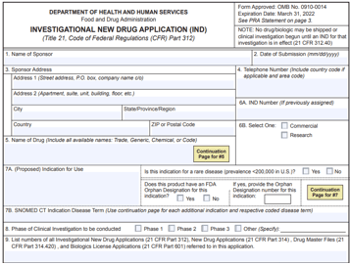IND-Enabling Report

IND applications along with many other regulatory submissions for investigational therapeutics require the assessment of off-target binding. Even though tissue cross-reactivity (TCR) studies are often employed for off-target screening, they may be incompatible with your biotherapeutic modality and can be cumbersome and difficult to interpret. Frequently, the functional or physiological relevance of positive tissue binding will remain unknown.
The Membrane Proteome Array (MPA) is a human cell-based platform where your biotherapeutics are screened against the largest comprehensive library of 6,000 human membrane proteins, covering 94% of the human membrane proteome that includes single-pass, multi-pass and GPI-anchored proteins. Our platform is highly sensitive, using high-throughput flow cytometry to test for direct binding interactions with membrane proteins in unfixed human cells, ensuring low rates of false positives and negatives as proteins are in their native conformation without masked epitopes. The MPA can not only confirm the specificity profile of your biotherapeutic, but in the event of off-target interactions provide you with the specific binding identities, thus enabling studies that can more accurately test physiological relevance of off-targets.
Data from the screen is fully validated by titration analysis to confirm specific interactions. Once binding interactions are validated, you will receive an IND-enabling data package report with complete traceability and auditability to support your regulatory filings within 4 weeks of sample submission.
Case Study
 Learn How Cabaletta Bio Used the MPA for a Successful IND Submission
Learn How Cabaletta Bio Used the MPA for a Successful IND Submission
Autoantibodies against desmoglein 3 (DSG3) cause painful mucosal blisters in mucosal pemphigus vulgaris (mPv). Cabaletta Bio developed DSG3-CAART (Chimeric AutoAntibody Receptor T cell) therapy to eliminate these autoantibodies by targeting the corresponding pool of antigen-specific B cells. To progress the clinical development, Cabaletta Bio needed to demonstrate the specificity of DSG3-CAART and document the lack of off-target interactions for their IND submission.
Contact Us
Towards IND: Specificity Profiling of Antibody Therapies Using the Membrane Proteome Array
June 10, 2021
Webinar Agenda
- Re-examine the long-held assumption that antibodies are exquisitely specific
- Learn what to do next if your molecule shows detectable off-target binding
- Discover how Membrane Proteome Array specificity data is used to satisfy regulatory requirements